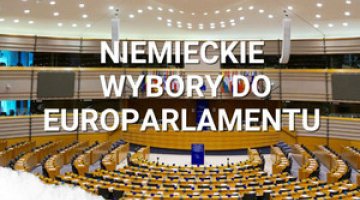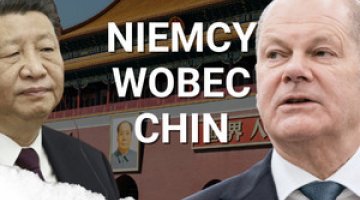The party of peace: the SPD is sending signals about the freezing of the war in Ukraine
On 14 March, the Bundestag once again rejected the motion tabled by the CDU/CSU parliamentary group to approve a decision to transfer Taurus long-range cruise missiles to Kyiv. During the discussion regarding this issue, the head of the SPD parliamentary group Rolf Mützenich criticised the opposition’s initiative and proposed a debate on ‘freezing and ending’ the war in Ukraine. His statement came under criticism from both the Christian Democrats and the coalition parties, whose representatives accused the SPD of undermining Germany’s credibility as Kyiv’s key ally and of encouraging Russia to continue its invasion of Ukraine.
In response to these arguments, Mützenich accused his opponents of taking individual sentences from his statement out of context, and declared his unwavering support for Ukraine’s sovereignty and territorial integrity within its pre-2014 borders. He also added that only Kyiv can decide whether and when to announce a ceasefire and freeze the conflict. At present, this line of interpretation is supported by other SPD politicians, including the party’s co-leader Lars Klingbeil, although at the same time he highlighted the legitimacy of holding talks on ways to end the war.
Commentary
- Mützenich’s statement has set a precedent in the debate about the war in Ukraine, as this was the first time that a high-ranking ruling party politician had mentioned freezing the conflict as a stage leading to its end. This concept is gradually beginning to dominate the SPD’s narrative. It emphasises Germany’s status as the main European donor of military aid to Ukraine, and openly expresses Berlin’s disappointment at the magnitude of support offered by other countries. Alongside this, Mützenich’s supporters from the left wing of the SPD (who form a majority in the parliamentary group) have been drawing on the tradition of Ostpolitik and criticising Germany’s focus on military aid as a tool to end the war. This message emphasises the need to launch diplomatic actions because continuing to increase the military support will clearly prolong the war, create the risk of an escalation, and increase the reluctance to end the conflict. Defence minister Boris Pistorius, who represents the SPD, is a prominent opponent of this stance. At present he is Germany’s most popular politician, and is openly arguing that Ukraine should win the war. In the situation of imminent elections (to the European Parliament in spring and to the Landtags of three eastern federal states in autumn), the opinions voiced by other SPD MPs – such as Michael Roth and Nils Schmid, who are critical of the party’s pseudo-pacifist course – will be increasingly marginalised. In December 2023 Roth failed to be re-elected to the party’s executive structures, of which he had been a member since 2017.
- The continuous efforts to highlight this more pacifist narrative result from internal political calculations, and are mainly intended to boost the currently low (15%) level of support for the party ahead of the elections. The SPD is positioning itself as a responsible peace-promoting party which cares about Germany’s security, while the remaining parties, especially the CDU/CSU, are portrayed almost as warmongers. This is intended to present Chancellor Olaf Scholz’s opposition to sending Taurus missiles to Ukraine in a favourable light, to neutralise the impression that he is politically isolated, and to mobilise the party’s electorate which is reluctant to see Germany providing military support to Kyiv. The pro-Russian AfD party, which in its campaign relies on anti-Ukrainian slogans, tops the polls in all eastern federal states, where its level of support runs at over 30%. The Social Democrats can count on 6–7% of the vote in Saxony and Thuringia and 17% in Brandenburg. Polls have shown that 61% of Germans are against providing Taurus missiles to Ukraine. This includes 58% of SPD supporters, 84% of AfD supporters and 85% of those who support Sahra Wagenknecht’s BSW.
- Aid initiatives targeted at Ukraine, including at Ukrainian refugees, are sparking increasing disputes within the ruling coalition. The Greens and the FDP support the plan to boost arms supplies to Kyiv, and have accused the chancellor of abandoning the assumptions of the Zeitenwende. Although both parties continue to observe coalition discipline during voting in the Bundestag and have rejected the Christian Democrats’ motions to send Taurus missiles to Ukraine, their representatives have openly declared their support for providing Kyiv with these missiles. The tensions within the coalition will rise as the campaign ahead of the elections to the EP and to the eastern federal state Landtags intensifies; this in turn will toughen Scholz’s stance on helping Ukraine. Despite this, a full-fledged break-up of the coalition over this issue is unlikely, as this would not be favourable to any of its constituent parties.




